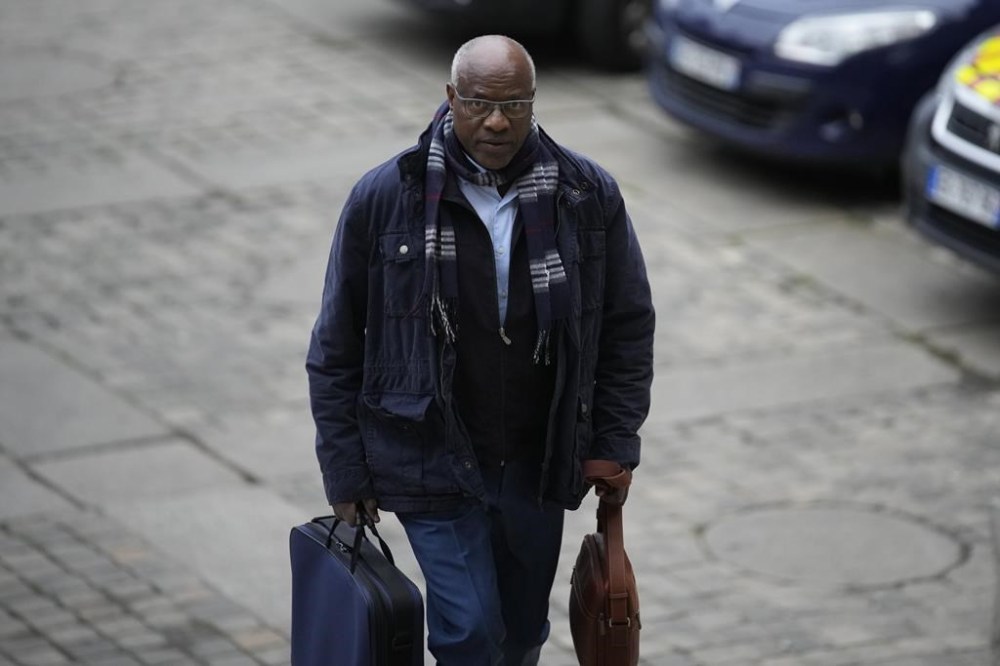A Rwandan doctor gets 24-year prison sentence in France for his role in the 1994 genocide
Advertisement
Read this article for free:
or
Already have an account? Log in here »
To continue reading, please subscribe:
Monthly Digital Subscription
$0 for the first 4 weeks*
- Enjoy unlimited reading on winnipegfreepress.com
- Read the E-Edition, our digital replica newspaper
- Access News Break, our award-winning app
- Play interactive puzzles
*No charge for 4 weeks then price increases to the regular rate of $19.00 plus GST every four weeks. Offer available to new and qualified returning subscribers only. Cancel any time.
Monthly Digital Subscription
$4.75/week*
- Enjoy unlimited reading on winnipegfreepress.com
- Read the E-Edition, our digital replica newspaper
- Access News Break, our award-winning app
- Play interactive puzzles
*Billed as $19 plus GST every four weeks. Cancel any time.
To continue reading, please subscribe:
Add Free Press access to your Brandon Sun subscription for only an additional
$1 for the first 4 weeks*
*Your next subscription payment will increase by $1.00 and you will be charged $16.99 plus GST for four weeks. After four weeks, your payment will increase to $23.99 plus GST every four weeks.
Read unlimited articles for free today:
or
Already have an account? Log in here »
Hey there, time traveller!
This article was published 20/12/2023 (685 days ago), so information in it may no longer be current.
PARIS (AP) — A Rwandan doctor was sentenced by a Paris court on Wednesday to 24 years in prison for his role in the 1994 genocide in his home country.
Sosthene Munyemana, 68, was found guilty of charges of genocide, crimes against humanity and helping prepare a genocide.
His lawyers said that he would appeal the decision. Munyemana has never been detained, remaining free throughout the trial. He won’t go to prison while an appeal is ongoing.

Munyemana, who moved to France months after the genocide and quickly raised suspicions among Rwandans living there, has denied wrongdoing.
The verdict comes nearly three decades after the genocide, in which more than 800,000 minority Tutsis and moderate Hutus who tried to protect them were killed.
At the time, Munyemana was a 38-year-old gynecologist in Tumba, in the southern university district of Butare.
He has been accused of co-signing in April 1994 “a motion of support” for the interim government that supervised the genocide and of participating in a local committee and meetings that organized roundups of Tutsi civilians.
Munyemana was then a friend of Jean Kambanda, head of the interim government.
He acknowledged participating in local night patrols, which were organized to track Tutsi people, but he said that he did it to protect the local population. Witnesses saw him at checkpoints set up across the town where he supervised operations, according to prosecutors.
Munyemana was also accused of detaining several dozen Tutsi civilians in the office of the local administration that was “under his authority at the time,” and of relaying “instructions from the authorities to the local militia and residents leading to the roundup of the Tutsis,” among other things.
Prosecutors said there was evidence of “intentional gathering meant to exterminate people,” and that Munyemana “couldn’t ignore” that they were going to be killed.
Munyemana arrived in September 1994 in France, where he has been living and working until he recently retired. Members of the Rwandan community in France first filed a complaint against him in 1995.
In recent years as relations improved with Rwanda, which has long accused France of “enabling” the genocide, France has increased efforts to arrest genocide suspects and send them to trial.
This was the sixth case related to the Rwandan genocide that came to court in Paris, all of them in the past decade.

